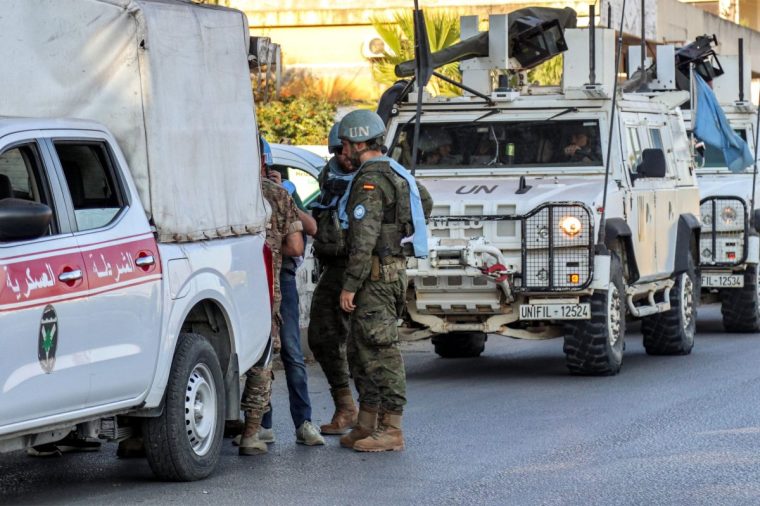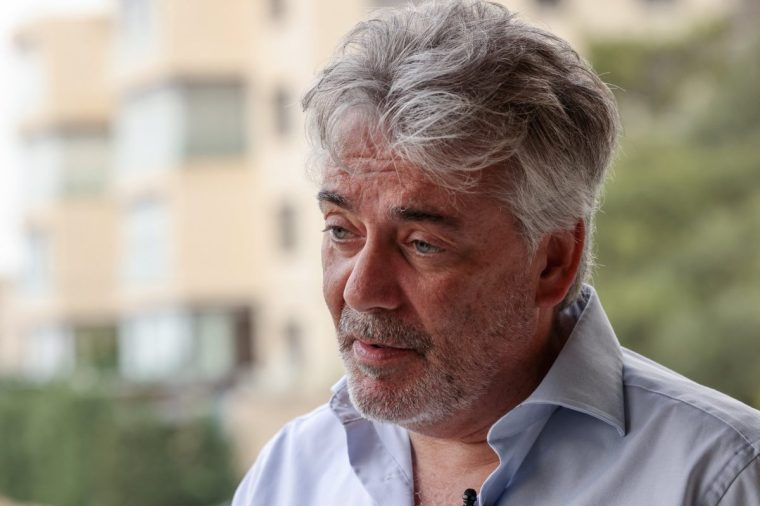The UN Interim Force in Lebanon (Unifil) has frequently found itself in difficult situations, including threats and attacks from both sides of the conflict between Israel and Hezbollah.
Unifil faced unprecedented attacks last week that intensified over the weekend, resulting in five peacekeepers getting injured in a series of Israeli strikes.
On Sunday, Unifil said two Israeli tanks destroyed the main gate at a peacekeepers’ facility overnight before troops “forcibly entered the position” in Ramiya in southern Lebanon. It came a day after Unifil said its headquarters in the border town of Naqoura was struck by explosions.
The Israeli military is demanding that the peacekeepers leave the area, but Israel has faced international condemnation for repeatedly firing on them since the start of its ground operation in Lebanon two weeks ago.
Israel’s hostility towards Unifil is not new, as it has long viewed these forces as being under Hezbollah’s control, accusing them of failing to prevent Hezbollah from stockpiling weapons south of the Litani River, in violation of UN Security Council Resolution 1701, which was drawn up following a month-long war between Israel and Hezbollah in 2006.
Unifil consists of about 10,000 peacekeepers from 50 countries, who have been patrolling the border area between Lebanon and Israel for nearly 50 years. They are tasked with reducing tensions along the “blue line” dividing Lebanon from Israel and the Israeli-occupied Golan Heights.

The mission’s Spanish commander, Major General Aroldo Lázaro Sáenz, has repeatedly emphasised that Unifil has no mandate to use force, and, as such, its main task is to produce regular reports that are discussed every four months by the UN Security Council. So far, none of these reports have resulted in binding action.
Unifil’s relationship with Hezbollah is marked by caution, as the local population in southern Lebanon is predominantly loyal to Hezbollah. Unifil refers to this population as the “local community”.
The residents of southern villages and towns, who have benefited from Unifil’s services and training programmes for farmers and women since 1978, monitor the daily patrols with suspicion.
Some patrols have led to violent attacks, the most recent of which occurred in the southern Lebanese town of Al-Aqabiya in 2022, when residents killed an Irish soldier and destroyed a Unifil vehicle after it entered a side road, reinforcing suspicions that the mission was spying on them.
Allegations of espionage have always lingered among Hezbollah’s popular base, particularly since some patrols, especially the French and Spanish, have repeatedly attempted to enter private property to take photographs, only to be driven off with stones.
But Unifil has largely maintained peace in the border region for 18 years. That changed, however, on 8 October 2023, when Hezbollah decided to open a front against Israel in what it called the “support war for Gaza”, which over the past year has evolved into a full-scale conflict in Lebanon’s south, eastern Bekaa Valley, and southern Beirut suburbs, with parts of central Beirut also being bombed by Israel.

As a result, UN peacekeepers are under increasing danger and are being targeted by Israel, which believes Hezbollah has long enjoyed near-complete freedom of movement in areas under Unifil’s mandate, with support from Iran.
Over the years, Hezbollah has built an arsenal of weapons, launched rockets towards Israel and dug offensive tunnels under the Lebanese-Israeli border, among other activities.
Israeli Prime Minister Benjamin Netanyahu has called on UN Secretary-General António Guterres to immediately withdraw UN peacekeeping forces from southern Lebanon.
“It is time for you to remove Unifil from Hezbollah strongholds and combat zones,” he said on Sunday.
Mr Netanyahu added that the Israeli army had repeatedly requested the withdrawal of Unifil forces, but their request was denied in order to “provide a human shield” to protect Hezbollah fighters.
This has made the situation for these forces very complex.

Andrea Tenenti, spokesperson for Unifil, said the peacekeeping mission was “committed to staying”.
He told i: “It is crucial for peacekeepers to remain in southern Lebanon. We are present here at the behest of the Security Council.
“Moreover, it is vital for the UN flag to fly in this region – not only to monitor the current, challenging situation but also to report back to the Security Council and to facilitate the delivery of humanitarian aid to the population in the south.”
He added that thousands of people remained trapped in villages, lacking access to basic necessities. “Thus, we will continue our presence.
“The situation is indeed challenging and concerning, yet peacekeepers will maintain their positions. Any decision regarding changes in the situation will rest with the Security Council, not with the peacekeepers on the ground.”
A senior international force official, speaking anonymously, said Mr Netanyahu “has no right” to request UN peacekeepers withdraw from their positions.
“The host government – in the case of Unifil, that is Lebanon – typically requests the Security Council to extend the mandate or deploy a peacekeeping force. This process is ongoing,” the official explained.
“However, that does not mean that the Security Council cannot make its own decision regarding Unifil. The Security Council always retains the authority to make decisions.
“If, for example, it determines that the situation has become too dangerous for peacekeepers, it may decide to relocate them or adjust their deployment. This is always within the Security Council’s purview, and we cannot question that.
“However, typically, the decision is made between the host government and the Security Council, not Israel, as it is not the host government.”
Lebanon’s ministry of foreign affairs issued a statement condemning the “systematic and deliberate targeting” carried out by the Israeli army against Unifil, saying the attacks on its headquarters in Naqoura “is an act that is condemned and illegal, violating the mandate defined by the UN Security Council”.
The ministry urged the UN Security Council, the international community and the countries contributing to Unifil’s mission to call for an investigation into the matter and to take a firm stand against the attacks.


